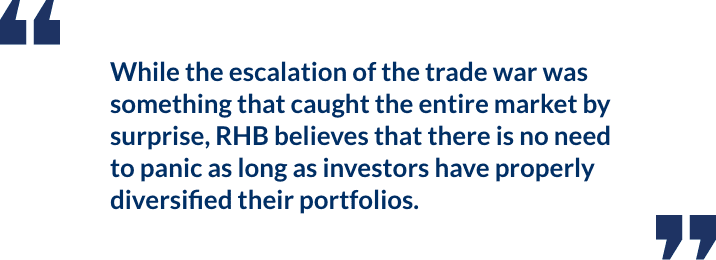A key point to consider is that a full-blown trade war bodes poorly for the leaders of both countries. Tariffs implemented by the Trump administration inevitably result in an increase in consumer prices and can have negative consequences on the economy. With the 2020 Presidential elections looming, Trump is betting that his voter base would focus more on the historically low unemployment figures and strong economic growth and, in turn, overlook the increase in consumer good prices. However, this is a dangerous gamble as a protracted trade war could particularly undermine his crucial support base in the swing states that voted for him in 2016.
Secondly, for Trump, failure to achieve a deal with China marks yet another setback in foreign diplomacy. It remains to be seen whether Trump and his administration would be able to swallow another diplomatic setback following the failure of his summit with North Korean leader Kim Jong-un earlier in the year. For Xi, despite being the country’s most powerful leader in decades, he has built his image on being a visionary and capable statesman. With the current conflict with the US already snowballing into one of the biggest setbacks in China’s foreign relations, he cannot afford to mismanage a bilateral relationship that has benefited China more than any other.
However, we must stress that this outlook is based on the sentiments and statements released at this given point in time. Relations have already deteriorated faster than expected and should the situation snowball into a tit-for-tat retaliatory affair with both countries imposing stringent tariffs on an assortment of imports, it is likely that the global economy could tip into a recession. Trump’s recent strike on Huawei could simply be a prelude to a full-blown technology cold war. Furthermore, there are already whispers that China is ready to limit, or worse, ban the supply of rare earth minerals. Rare earth minerals are vital components used extensively in the manufacturing of a large number of products ranging from smartphones and batteries to turbines, lasers, camera lenses and stealth technology. China produced over 90% of the world’s supply of these critical elements over the past decade and should Xi decide to embark on this option, it would result in unimaginable consequences for the US, which only produces less than 10% of the world’s supply and imports half of what it consumes. However, RHB believes that this response from China is unlikely, given that such a move is mutually destructive.
Investment strategies for the remaining year
While the escalation of the trade war was something that caught the entire market by surprise, RHB believes that there is no need to panic as long as investors have properly diversified their portfolios. Despite the escalation in tensions between the two global economic superpowers, our approach remains the same. We are optimistic that both countries are able to reach a mutually agreeable deal and that the major themes we identified for 2019 remain intact. Since the start of the year, sector-wise, we have favoured the healthcare and technology sectors.
Despite the trade war, healthcare will remain relatively unaffected as the sector will benefit from a continually ageing global population. In addition, technological developments have been consistently delivering breakthroughs. differentiated internet companies will continue to replace existing services and seize market share from traditional bricks and mortar players. We believe that the internet sector will remain relatively unaffected by the trade war and that it is inevitable that advancements would continue to yield return for investors for the remainder of 2019 and beyond.
From a geographical standpoint, RHB still believes in the growth story of Asia and Asean. With the conclusion of general elections in Indonesia and the Philippines, where the popular incumbent candidates won comfortably, we continue to be positive on these growing economies.
We also continue to favour Chi-na’s growth story and believe that, unlike first half of 2018, the country is more prepared to deal with the US-China trade war this year. For example, the recent Reserve Requirement Ratio cuts in May is a strong statement of policy support and flexibility from the Chinese government. In addition, China will continue to ease and stimulate on numerous domestic fronts. Notably, we continue to build our positions in domestic sectors that will benefit from policy stimulation of domestic consumption. We also like infrastructure-oriented and property companies as potential policy easing beneficiaries, providing a hedge against escalation of trade tensions. The inevitable increasing of China equity weights due to MSCI inclusion and the opening up of the financial sector in China will continue to provide investors with ample investment opportunities over the medium term. However, volatility is expected to be high as we move into a new phase of the trade war.
Ultimately, in these volatile times, stock selection is the key to success. We will continue to dutifully monitor political and market developments — especially the G20 meeting at end-June — and will look to accumulate quality names at attractive price levels. However, we must stress that global political situations can shift in the blink of an eye. Investors must understand that the investment journey is one that is never smooth sailing and it is in their best interests to align themselves with a reliable investment manager with the expertise to navigate through these turbulent times.

